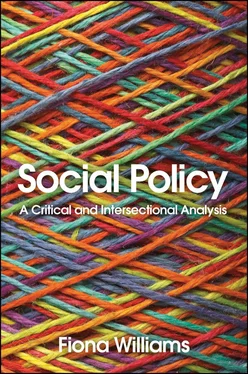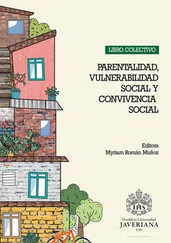That connection between the struggles of then and the possibilities of now has been likened to two bookends holding between them half a century of neoliberalism (Barnett 2020). At one end are the struggles for civil rights, solidarity with the Vietnamese against American imperialism, the Prague Spring, the 1968 student uprisings and the new social movements that followed. Within these were fundamental critiques of exclusions of those marginalized from the so-called universal progress of modernity since the Enlightenment in social, civil and human rights. At the other end, the global struggle for a new humanism is again asserting itself in different forms – the surfacing of a seam of activism that has continued in parallel to neoliberalism. Its impact was marked by the fact that, when Covid-19 struck, most governments felt obliged to prioritize, however incompetently and short-run, people’s lives and health over the financial interests of capitalism. This feeling of the value of human life, structured in people’s consciousness across the world, was given expression by the support for the Black Lives Matter protests in May 2020.
The ‘bookends’ metaphor is relevant to social policy. The development of a critical approach to social policy emerged from those sharpened understandings of welfare states in the 1970s and 1980s which provided feminist and anti-racist critiques of social policy and revised the class-centric perspectives of Marxist political economy. In particular, along with critiques based on disability, sexuality and age, they elaborated the social and organizational relations of power within welfare states and looked to participatory democratic and alternative ‘prefigurative’ 1ways of meeting people’s needs. The uptake in activisms in the wake of the 2008 global financial crisis combined with the changing political context has shaped critical reflections on these earlier concepts. For example, the social concepts of ‘race’ and ‘Black’ once served to politicize and unify experiences of racialized oppression, yet, on their own, they do not convey the specificities of experiences of those constituted as minority ethnic groups (Modood [2007] 2013; Murji 2017) or the reconfigurations of diverse migrations (Vertovec 2007; Phillimore et al. 2021). Ethnicity, religion, nationality, language and migrant status (not to mention class, gender, sexuality, disability and generation) shape those experiences in different ways at different times. However, those categories are given shape and meaning through social policies and public (and popular) discourses. Such developments challenged the fixed binaries (male/female, Black/White, gay/straight, etc.) attached to gender, sexuality, race, ethnicity, disability and generation and introduced more fluid and dynamic interpretations of diverse subjectivities, identities and social positionings.
From the 1990s critical efforts were concentrated in reinstating the area of ‘the social’ into both welfare regime analysis and analyses of the cultural, ideational, organizational and material challenges to the Keynesian welfare settlement (Clarke and Newman 1997; Williams 1995; Lewis 2000; Lister 2003; Béland 2009). These developments influenced new thinking in social policy around both the agency of providers and users of welfare and their psychosocial dimensions and around welfare governance and its fluid and contingent reach to multiple publics (Clarke and Newman 1997; Williams et al. 1999; Lewis 2000; Hoggett 2001; Newman and Clarke 2009; Newman 2012a; Barnes and Prior 2009; Hunter 2015; Lister 2021). In addition, the issue of care has been transformed from being about family policy to a domain of intersecting and intersubjective power relations, a labour as well as a commodity, a relational ethics, and a dynamic central to the postcolonial transnational political economy, to democracy and to intersectional global justice (Sevenhuijsen 1998; Tronto 1993, 2013; Daly 2002; Robinson 1999; Williams 2001, 2018). Earlier anti-essentialist refusals to see ‘nature as destiny’ shifted to exploring the dynamics of power relations between human life, nature, technology and science in the ‘new materialisms’, in ecofeminism, and in ideas of the posthuman and critical disability studies (Coole and Frost 2010; Braidotti 2013; Goodley et al. 2014). These new forms of interdependence between the human, non-human and living world have created new challenges of developing eco-social policy analysis (Gough 2017; Jackson 2016) and new models for a wellbeing economy (Raworth 2017; Care Collective 2020) and for the possibility of a social commons (Ostrom 1990; Mestrum 2015; Newman and Clarke 2014; Coote 2017; Gough 2017). Prefigurative activism is now understood as part of the methodology of Utopian thinking (Levitas 2013; Cooper et al. 2020). Postcolonial critiques interrupt the dominant readings of globalization and of welfare regimes that ignore its history in a colonial world order whose logics of racial, gender, sexual and bodily subordination and dehumanization have been carried into contemporary geo-social politics (Mignolo 2011; Bhambra and Holmwood 2018; Shilliam 2018). Within social policy, Mbembe’s (2019) powerful concept of necropolitics, which refers to the state’s capacity to decide who is and who is not disposable, illuminates an understanding of the relationship between welfare policies and the situation of migrants, asylum seekers and BAME groups more generally (Mayblin et al. 2019).
Piecemeal and marginal to mainstream welfare theory as they may be, these new developments have influenced critical thinking in social policy. I have suggested elsewhere (Williams 2016) that these constitute ‘five turns’, 2to: (i) agency, understood in relational rather than individualist terms; (ii) political ethics of care, of ecology, and of decoloniality; (iii) the global, post-/decolonial and geo-political relations of welfare states; (iv) prefigurative politics; and (v) the (re)turn to intersectionality. What they have in common is their attention to the complexity and multiplicity of power and inequality and to the connections between cultural, social, economic and political marginalization. They are informed by local and transnational activism. They provide new lenses on an understanding of possibilities of humanness and society’s ethical obligations, and, in doing so, they point to possibilities for future social policy. What each of these ‘turns’ means will become clear in the description of the book’s structure that follows.
The book is divided into three parts: Orientation discusses the theories that influence this book and my main frames of analysis. Analysis applies these theories and frameworks to three different areas: the welfare austerity decade in the UK, the question of agency, and the transnational political and social economy of care. Praxis discusses the implications of political ethics (of care, ecology and decoloniality) and contemporary prefigurative politics for a future eco-welfare commons.
Chapters 2and 3contribute to explaining the book’s orientation. In chapter 2I first elaborate and provide an explanation for the point I have made in this chapter: why it was that the theoretical and political insights of feminist, anti-racist and other critical-thinking analyses remained on the edges of the core theories of the discipline. I argue that there were a number of contradictory dynamics involved in this (re)marginalization which came not only from within the discipline but also from social, economic, political and intellectual developments over that time. The second part of the chapter considers possibilities for enhancing the explanatory power of new critical developments in social policy in order to bring these marginalized issues into the centre of social policy analysis. This involves combining an intersectional analysis with critical approaches to social policy. While acknowledging the limitations of some applications of intersectionality, I argue that its strength for social policy lies in its potential to unearth – through lived experiences and struggles – the multiple complexities of social power and inequalities (around gender, race, ethnicity, class, etc.) as well as participatory and transformative possibilities for social justice. It challenges fixed and essentialist approaches in which social positions or economic systems are seen as given, natural or overdetermining. It emphasizes relationality, the contingencies of time and place, and the contested, contradictory and unsettled nature of phenomena, and it prioritizes ideas that emerge from the margins and inform resistance. At the same time, I argue that it is important to recognize the times and places when the salience of one particular form of inequality is greater, in social justice terms, than the others. It is also important to place an intersectional reading in an understanding of welfare states’ relationship to a capitalism that is patriarchal, extractivist and racially structured. It is here and in critiques of the social relations between providers and users of welfare that critical approaches to social policy can strengthen intersectionality.
Читать дальше












